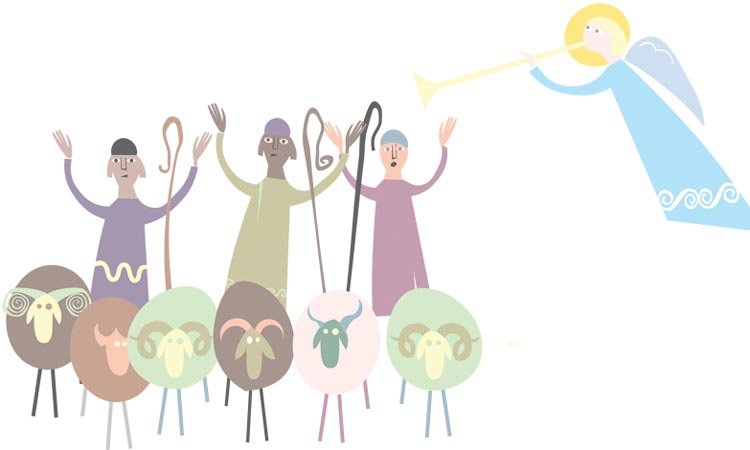“There were shepherds living out in the fields nearby, keeping watch over their flocks at night.”—Luke 2:8 NIV
When I was a child, one of my favorite pictures of Jesus depicted Him as the Good Shepherd, carrying a lamb around His shoulders. If you’re like me, you might have expected that those shepherds watching their flocks on the hillside the night He was born would have been respected members of society, considered honest, dependable, believable witnesses, trustworthy and upright. Why else would the angels have entrusted them with such an important message as testifying of the coming of God’s Son?
The facts seem to be a little different: According to some historians, shepherds in first-century Palestine were considered the lowest of the low. The term used for them by the Pharisees is sometimes translated as “sinners”—a derogatory term meaning vile and ritually unclean. Their lives were spent handling animals, often sleeping outdoors surrounded by dung and possible disease. It seems they were not even considered worthy to offer a sacrifice to God.
From man’s limited perspective, God was sending a band of outcasts to be the greeting party for His Son and to spread the good news of salvation to all who would listen. By today’s standards, that might equate to an angelic choir appearing to a group of garbage dump scroungers. Yet God looks at the heart. It doesn’t matter to Him what someone’s occupation is or how they’re dressed.
The Bible says the shepherds ran to see the babe, so they didn’t have time to take a bath or change to a nice set of clothes, which they most likely didn’t have anyway. They ran as they were, straight from the hilltop into the presence of their Savior. 1 We can imagine them excitedly recounting their experience to Mary and Joseph and being welcomed by them with love and acceptance.
Why would God choose the shepherds? Why would He offer this priceless privilege to these who were so unworthy in man’s eyes? Perhaps because He knew they would believe with pure and simple faith. They could be counted on to run to the side of God’s newborn Son with sheer enthusiasm.
Not only were the shepherds honored by God, but they were also given the privileged task of spreading the good news to others. In telling others of the Savior’s birth, 2 the shepherds became the first Christian missionaries.
